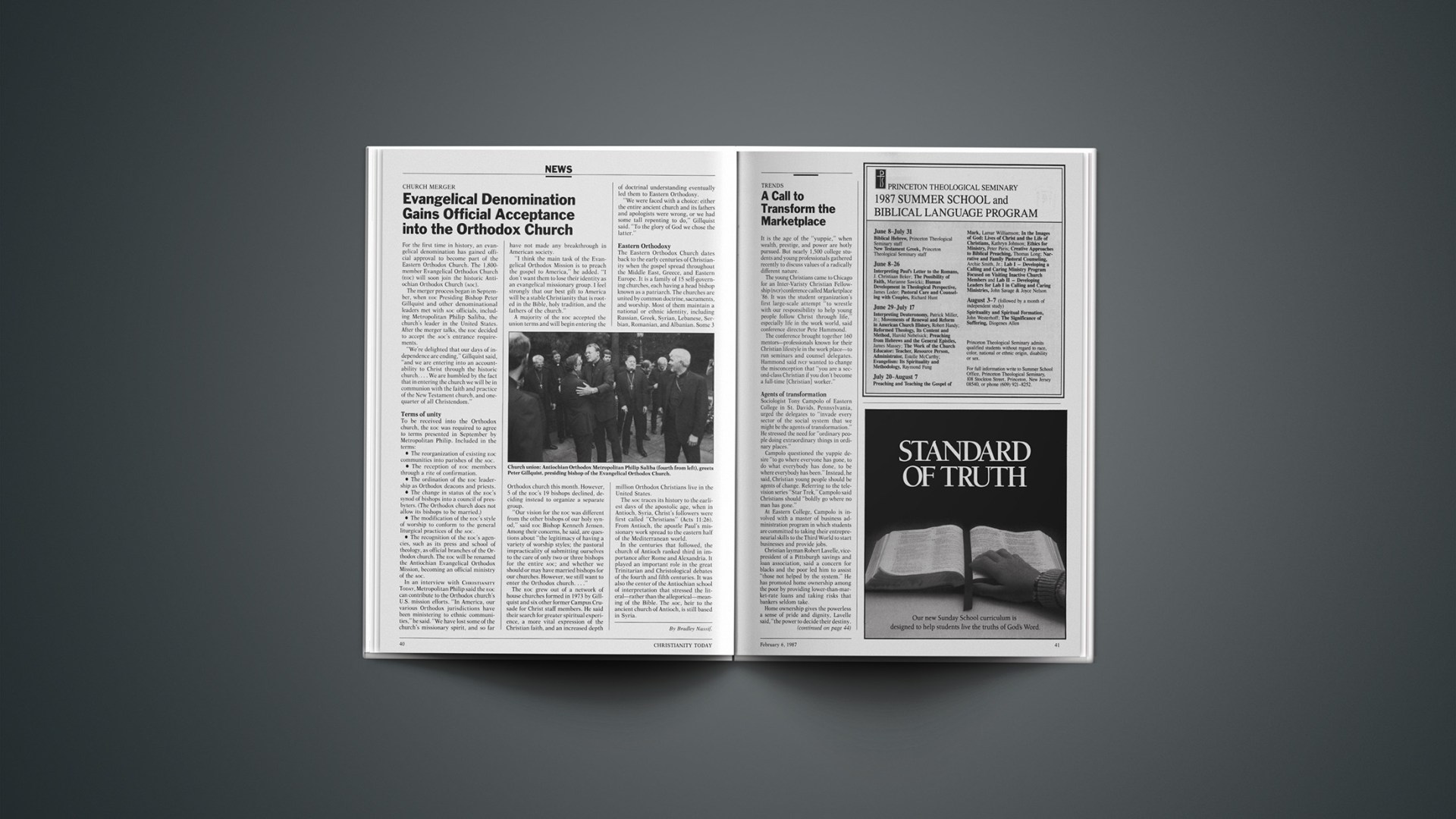It is the age of the “yuppie,” when wealth, prestige, and power are hotly pursued. But nearly 1,500 college students and young professionals gathered recently to discuss values of a radically different nature.
The young Christians came to Chicago for an Inter-Varisty Christian Fellowship (IVCF) conference called Marketplace ’86. It was the student organization’s first large-scale attempt “to wrestle with our responsibility to help young people follow Christ through life,” especially life in the work world, said conference director Pete Hammond.
The conference brought together 160 mentors—professionals known for their Christian lifestyle in the work place—to run seminars and counsel delegates. Hammond said IVCF wanted to change the misconception that “you are a second-class Christian if you don’t become a full-time [Christian] worker.”
Agents Of Transformation
Sociologist Tony Campolo of Eastern College in St. Davids, Pennsylvania, urged the delegates to “invade every sector of the social system that we might be the agents of transformation.” He stressed the need for “ordinary people doing extraordinary things in ordinary places.”
Campolo questioned the yuppie desire “to go where everyone has gone, to do what everybody has done, to be where everybody has been.” Instead, he said, Christian young people should be agents of change. Referring to the television series “Star Trek,” Campolo said Christians should “boldly go where no man has gone.”
At Eastern College, Campolo is involved with a master of business administration program in which students are committed to taking their entrepreneurial skills to the Third World to start businesses and provide jobs.
Christian layman Robert Lavelle, vice-president of a Pittsburgh savings and loan association, said a concern for blacks and the poor led him to assist “those not helped by the system.” He has promoted home ownership among the poor by providing lower-than-market-rate loans and taking risks that bankers seldom take.
Home ownership gives the powerless a sense of pride and dignity, Lavelle said, “the power to decide their destiny. It means that if your taxes aren’t being spent the way you think is best, you can go down to city hall and complain. It means that if the schools aren’t providing the best education and atmosphere for your children, you can say something about it.”
Plenary speaker Wayne Alderson, a labor-management consultant and former steel industry executive, said Christian leaders have not been committed to developing a strategy to win the marketplace for Christ.
“Before the century is up,” Alderson told the delegates, “we will have a revolution or a reformation” in the work world. He pointed out that school teachers joined unions in the 1970s and went on strike in the 1980s. Another area of potential confrontation is the hospitals, he said, where “doctors dehumanize nurses.”
Feelings of alienation, frustration, and disappointment that are experienced in the work world are brought home, he said, where families are affected. When Alderson called for a 40-year commitment—the average life span in the work world—to bring about a transformation of the marketplace, a vast majority of the conference delegates stood up.
Students’ Responses
A range of responses was evident among the delegates. Christine Chen, a sophomore business major at the Massachusetts Institute of Technology, said her goal for attending the IVCF conference was “to get started early, so that once I go into the marketplace I would have a lot of ideas on how to bring God’s kingdom to the marketplace.” Chen said she was encouraged by the emphasis that “it’s the ordinary people that make the difference in bringing God’s kingdom here on Earth.”
Georgianna Cemento, a junior majoring in theater performance at Brooklyn College, said she came to the realization that “God has not given us jobs just to earn money. Our job is the mission field.”
By Lawson Lau in Chicago.










